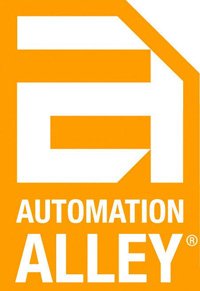Automation Alley Senior Director Tom Anderson offers up funding to entrepreneurs
Monday, Aug 12, 2013
Automation Alley Senior Director Tom Anderson offers up funding to entrepreneurs
| What defines a captivating business plan? What are some of the most common mistakes entrepreneurs make when seeking funding opportunities? As Automation Alley’s senior director, Tom Anderson knows a thing or two about what startups can do to get noticed by investors and how they can set themselves apart in Southeast Michigan’s growing entrepreneurial ecosystem. Anderson, with assistance from Automation Alley Entrepreneurial Services Manager Natalia Stasiw, oversees Automation Alley’s technology business accelerator programs, which help entrepreneurs obtain an external review of their technology and business plan. This process results in feedback and input for fine-tuning the business plan and, in some cases where there is a technology fit, direct pre-seed investment for commercialization. Since 2004, Automation Alley has invested $8.27 million in 36 technology-driven companies or projects across Southeast Michigan. We caught up with Anderson at Automation Alley Headquarters in Troy to get a behind-the-scenes look into the funding process. Q: What are the key elements you look for when reviewing a business plan submitted to Automation Alley? A: We want to make sure the company has defined the market, identified the competition and expressed how their solution is different from or better than the competition. Why would somebody want to pay for your solution? We also want to know who the management team is and some projected financials. We need some estimate of where the company is heading. We also look for clear and specific milestones for what they want to do with the funding. If all of that looks good, we forward the business plan on to our investment review committee to get their feedback. This is a group of professionals who are engaged with business startups. We look to them for guidance and input. The other thing we require is that there is a matching private investment. If the investment review committee winds up liking the business plan, we do want to have a face-to-face meeting with the entrepreneur. That’s when they make their pitch. We want to get to know who we’re investing in, what their experience base is and begin to establish a working relationship of collaboration for success. The real value of a business plan is not the plan itself but the thinking process it forces you to go through to make sure all the key elements are covered. Q: What are the different kinds of funding Automation Alley offers and how do startups know which opportunity is right for them? A: We have three different sorts of funding. With seed funding, we are looking for technology-driven companies and are willing to make an investment of up to $250,000 as long as there is matching private investment. For companies with less than $1 million in revenue, there is the Business Accelerator Fund, managed by the Michigan Small Business & Technology Development Center (MI-SBTDC). This type of funding provides up to $50,000 to support hiring external expertise or capabilities. That can be a consultant or a contract manufacturer that allows a startup to take the next critical step toward getting their product out the door. In that case, funds come to us and we pay the provider subject to a copayment from the awardee. The third type of funding is a microloan, which is part of the Michigan Pre-Seed Capital Fund. Those are loans of up to $50,000, which get reviewed by the board at the Michigan Pre-Seed Capital Fund. The board is made up of a person from each of the SmartZones in the state. This loan targets companies that are at a concept-validation stage. These are less advanced than companies going after seed funding. And it’s a loan, so it’s expected to be repaid. Q: What are some common mistakes you see startups making when applying for funding? A: On average, only one out of 10 companies reviewed by Automation Alley actually receives funding. It’s important to remember that funding is not the only hurdle to starting a business, and that the majority of new businesses are started with personal investment and bootstrapping. Ideally, before raising outside investment companies should strive to build some customer traction and revenue. They should be taking a prototype out to customers to get validation, potentially even initial sales. It’s important to find a way to sell small amounts of your product or service. If you have some customers and revenue, funding will find you. Another common fault we see is that entrepreneurs will have a great idea, want to build a business and are looking for funding and they have near zero of their own personal worth invested in the business. That’s a real red flag to investors who want to make sure that everyone’s objectives are aligned, and that in the event of failure all parties, including the founder, will experience significant financial impact. Q: Out of the 36 companies Automation Alley has invested in, which ones stand out for you as success stories? A: One that stands out is Cielo MedSolutions, LLC from Ann Arbor. They were a provider of health care software and Web applications focused on clinical quality management. Automation Alley provided them with initial seed funding which allowed them to secure funding commitments from other investors. They built their business to the point where they were acquired and they are our most successful investment as measured by return on investment to date. Another one that stands out is Tangent Medical, an IV therapy developer also out of Ann Arbor. They started with an evaluation of real challenges in health care, identified an initial problem for which they could define a solution, systematically pursued customer feedback throughout the development process and expanded their management team as needs changed. |  |
